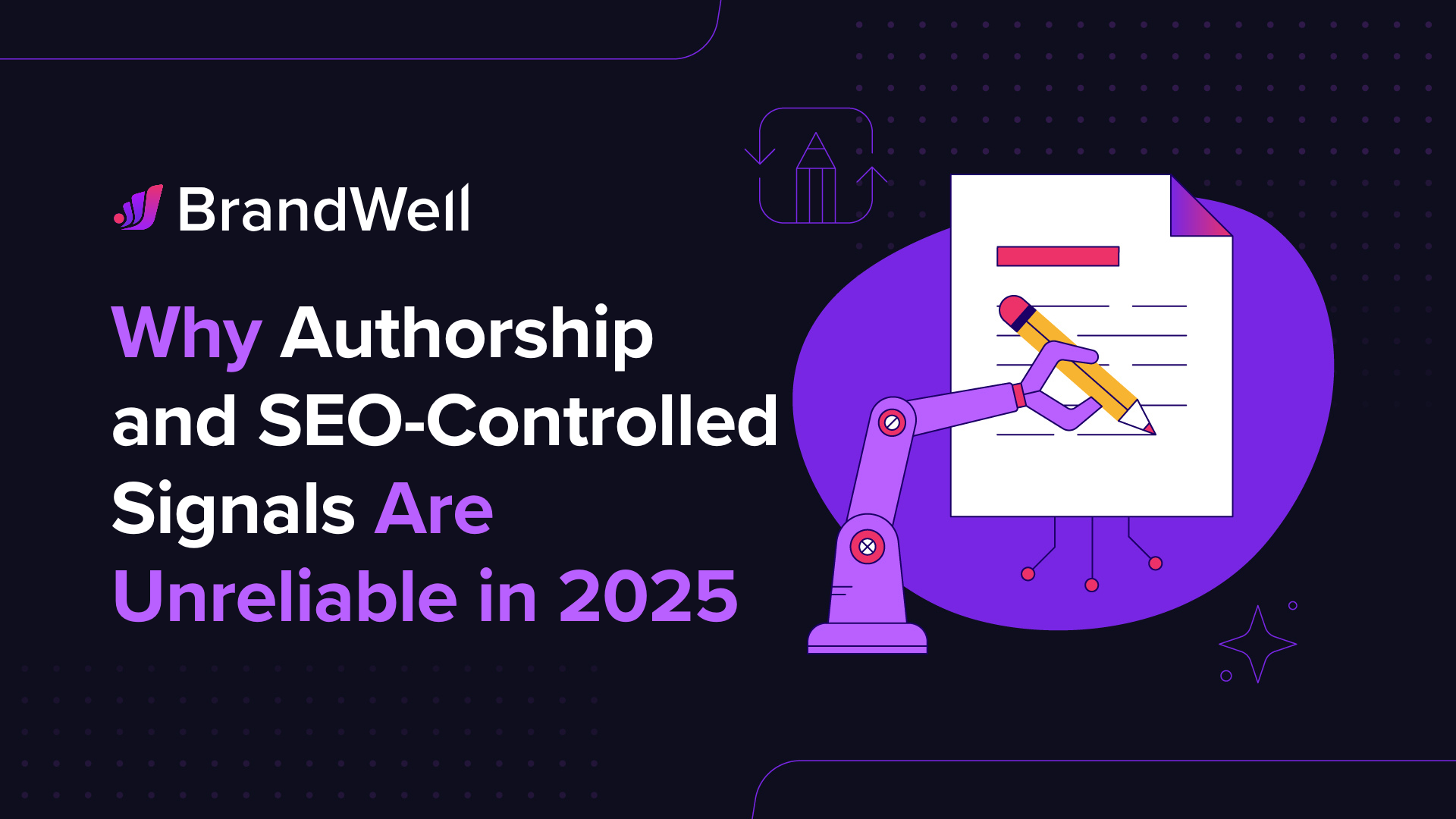For years now, countless SEOs have diligently optimized websites based on assumed Google ranking signals. We were laser-focused on “experience”, “expertise,” “authority,” and even “trust,” desperately trying to send the right signals to Google’s algorithms.
However, a statement by Google’s Gary Illyes has sent shockwaves through the SEO community, challenging the very foundation of these efforts. The truth is, much of what we thought we knew about authorship and SEO-controlled signals is unreliable.
Why Authorship and SEO-Controlled Signals Are Not Reliable
In an interview last May, Illyes, a prominent figure at Google, addressed a persistent question in the SEO community: the return of authorship markup.
For those not in the know, authorship markup was a way for website owners to tell Google who wrote a piece of content. This was seen as a way to bolster a website’s authority, but Google discontinued it in 2014. Many SEOs have been waiting for its triumphant return, believing it to be a powerful ranking factor.
The concept was seductive: highlight your content creators, flaunt their credentials, and watch your search rankings soar. Unfortunately, Illyes poured cold water on this idea. He explained that any markup directly controlled by SEOs is prone to manipulation. When we can directly influence signals, those signals lose their value because they are easily spammed.
Think about it: why would Google rely on information that could be fabricated or exaggerated? Especially when they have ways of algorithmically determining true authority and expertise?
Illyes even cast doubt on the reliability of algorithmically determined authorship, suggesting it holds little value. He believes these signals are too easily gamed and ultimately don’t paint an accurate picture of a website’s quality.
This is a hard pill to swallow for those who’ve invested time and energy building up a web of supposed “authority signals.” It requires a shift in perspective, moving away from trying to game the system and instead focusing on creating content that genuinely serves the user.
The Case of Rel=Canonical
During this same interview, Illyes brought up “rel=canonical,” a technical tag used to tell search engines which version of a webpage is the original. Google now considers rel=canonical a “strong suggestion,” not an absolute directive. This distinction is significant. Even technical signals designed to help Google understand our websites are not infallible in their eyes.
It further reinforces the idea that authorship and SEO-controlled signals are unreliable and shouldn’t form the core of your optimization efforts. The focus should be on creating high-quality content, improving user experience, and building organic backlinks, all of which contribute to a stronger and more authoritative online presence.
Rethinking Our SEO Approach
The question then becomes – what SHOULD we focus on? If carefully curated author profiles and meticulously crafted meta descriptions aren’t moving the needle, what does?
This revelation has forced many to adopt a more holistic approach to SEO. The digital marketing landscape is ever-changing, and relying solely on manipulative tactics is no longer a sustainable strategy.
Google’s search quality raters are increasingly emphasizing the importance of authentic and user-focused content. Here are some core principles to focus on:
- High-Quality, Helpful Content: Google’s algorithms have become exceptionally good at identifying content that truly benefits the user. Producing high-quality content is crucial for establishing your website as a reliable source of information.
- Technical Excellence: Ensure your website is technically sound, loads fast, and is easy to navigate. A technically robust site inspires confidence in Google.
- User Experience: Are users sticking around on your site, engaging with content, and clicking through to other pages? Or are they bouncing back to the search results in frustration? User engagement metrics play a crucial role in search engine rankings. Providing a positive user experience is essential for both users and search engines.
- Backlink Profile: Are other websites linking back to your content? Backlinks remain a strong indicator of trust and authority to Google. However, these backlinks must be earned organically, through high-quality content, not spammy tactics. A website’s backlink profile remains a significant ranking factor, as it reflects the reputation and authority of a site within its niche.
Remember, we don’t “control” Google. The best approach is to provide what users and algorithms alike will value: useful, engaging, well-written, and technically sound content on a website that provides a fantastic user experience.
You can get all of this and more from BrandWell.
Instead of chasing elusive signals, concentrate on building a brand that resonates with your target audience. By consistently delivering exceptional content and experiences, you’ll naturally attract the attention of both users and search engines.
Here’s the full interview where Gary talks about authorship at around the two-minute mark:
Conclusion
For many SEOs, the revelation that authorship and SEO-controlled signals are unreliable is sobering. The game has changed, requiring us to adapt our strategies and realign our priorities.
While we still incorporate keywords, meta descriptions, and technical elements, it’s becoming increasingly evident that Google places far greater emphasis on content that demonstrates true value and authenticity. This means creating content based on search intent, understanding what users are truly searching for, and providing them with valuable search results.
Instead of trying to manipulate search engine algorithms, focus on creating compelling author experiences and content that caters to the needs and interests of your audience.
Remember, sustainable SEO success hinges on adapting to the evolving landscape of search and prioritizing user satisfaction above all else. Focus on increasing organic traffic by building a website that provides real value, engages its visitors, and establishes itself as an authority in its field.




